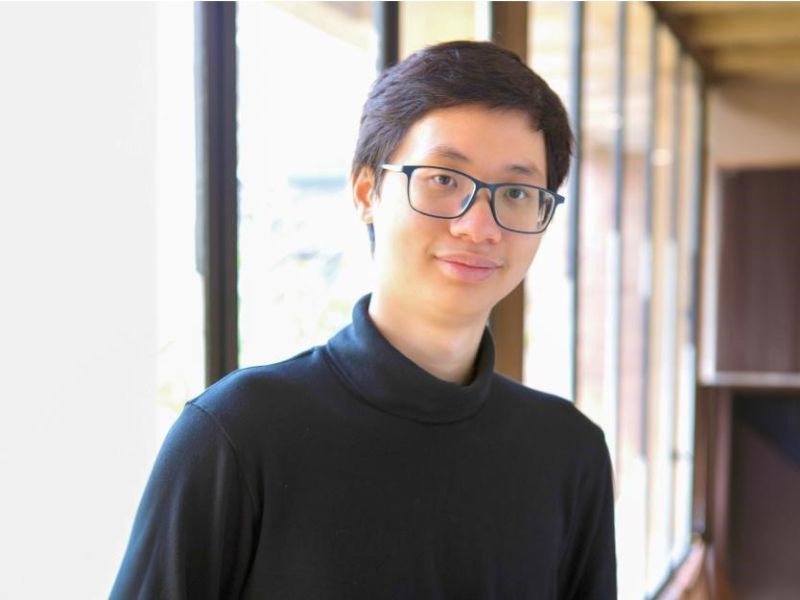 Sapolnach Prompiengchai an alumni of Sarala Birla Academy is one of the two Rhodes Global Scholar Elects for 2024. Rhodes Scholarship is considered among the world’s most prestigious international scholarship programs for admission to Oxford University. The Global scholarship was introduced in 2019 and is available to candidates from anywhere in the world. It covers expenses for a postgraduate degree at the University of Oxford and is awarded to students based on outstanding intellect, character, leadership and commitment to making a positive impact on the world. Rhodes Scholars have achieved distinction as politicians, academics, scientists and doctors, authors, entrepreneurs, and Nobel Prize winners.
Sapolnach Prompiengchai an alumni of Sarala Birla Academy is one of the two Rhodes Global Scholar Elects for 2024. Rhodes Scholarship is considered among the world’s most prestigious international scholarship programs for admission to Oxford University. The Global scholarship was introduced in 2019 and is available to candidates from anywhere in the world. It covers expenses for a postgraduate degree at the University of Oxford and is awarded to students based on outstanding intellect, character, leadership and commitment to making a positive impact on the world. Rhodes Scholars have achieved distinction as politicians, academics, scientists and doctors, authors, entrepreneurs, and Nobel Prize winners.
After getting to know about the Rhodes Global Scholarship, Sapolnach wrote to us: “I want to take the opportunity to thank Sarala Birla Academy for playing the biggest role in my character development and providing me with lifelong leadership skills and humility, which all played an important role in making me who I am today.“
Sapolnach joined Sarala Birla Academy in 2012 in Grade V and passed out in 2020 after completing his Grade XII (IBDP). He was admitted to the University of Toronto with a Pearson Scholarship. He got into Professor Andy Lee’s cognitive neuroscience lab in May of 2022 through the U of T Excellence Award (UTEA) program where he is doing functional Magnetic Resonance Imaging (fMRI) experiments to discover how the brain encodes time when memories are formed. “Learning brain imaging techniques such as fMRI is such a valuable experience. I want to study which treatments work best, so if I want to know which targeted medication works best for treating depression, for example, it’s important to know which areas of the brain are activated. One of the best ways to do that is through sophisticated imaging techniques like fMRI. ” says Sapolnach.
Professor Lee says what stands out about Sapolnach is his ability to balance excellent grades with all of his research commitments. “He’s just really curious,” says Professor Lee. “Not only will he complete an fMRI analysis, he will also want to know everything about the principles behind that analysis. That insatiable curiosity is a tremendous quality to have as a researcher.”
Professor Bill Gough, U of T Scarborough Vice-principal Academic and Dean, congratulated Sapolnach on the achievement. “On behalf of U of T Scarborough, I want to extend my sincerest congratulations to Sapolnach on this incredible achievement,” said Gough. “He embodies all of the characteristics of a Rhodes Scholar. Not only is he committed to academic and research excellence, his commitment to making the community a better place is a true inspiration.”
In the past year Sapolnach also took part in the launch of Inlight, an Institutional Strategic Initiative that aims to improve mental health and wellness among post-secondary students. He was a member of Inlight’s student advisory committee, where he helped decide the initiative’s fellowship and research grant programs and is now helping develop resources to drive student engagement and participation in mental health research.
In addition to completing projects on educational psychology with Professors Steve Joordens and Aarthi Ashok, he also worked in Professor Anthony Ruocco‘s lab on a suicide prevention study, and more recently was able to do environmental chemistry research in Professor Andre Simpson’s lab. He also completed a neuroscience project in U of T Professor Katherine Dunlop‘s lab using transcranial magnetic stimulation techniques.
Sapolnach plans to continue studying neuroscience at the University of Oxford in September 2024, but his ultimate goal as a scientist is to translate his research into making a positive impact on the world. “I think to properly tackle mental health you need to become a multidisciplinary scientist, so I hope to learn more about genetics and chemistry. I hope to one day be a scientist who can work with diverse stakeholders including politicians, clinicians, scientists and community groups from diverse backgrounds in order to translate research into real-world solutions.”, says Sapolnach.
(Much of the above have been taken from the University of Toronto Scarborough News)























